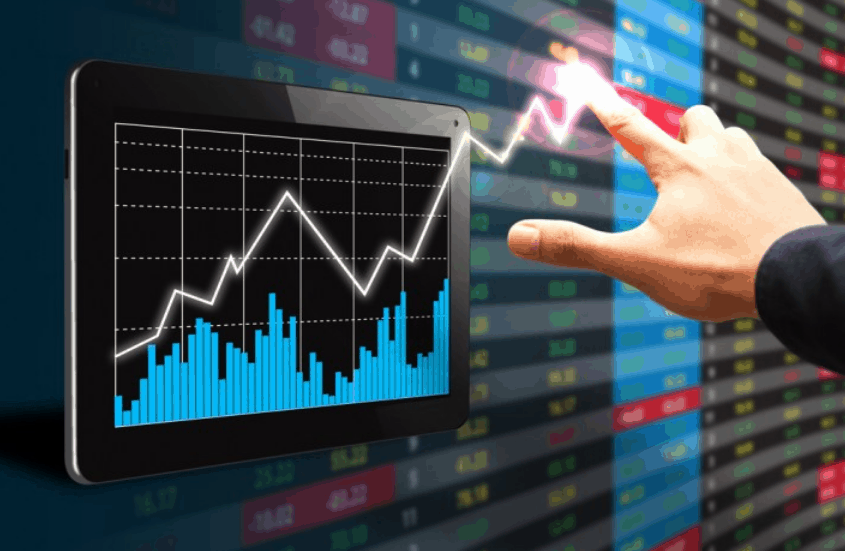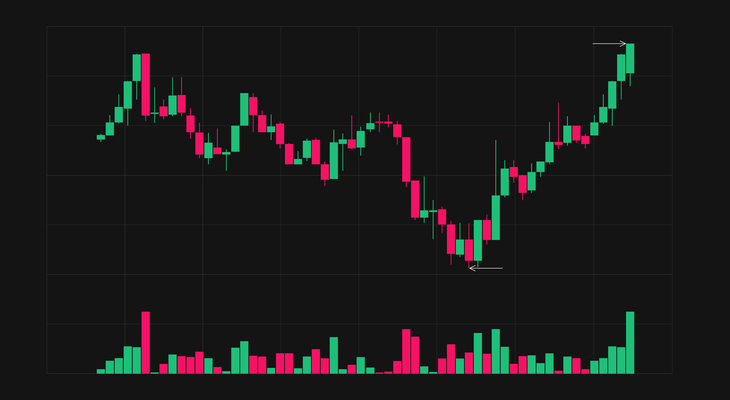Oil trading is a thrilling opportunity to capitalize on the global demand for oil and its volatile market. It is a chance to experience the rush of navigating the turbulent waters of a changing market, to explore the secrets of the industry and make a profit.
Understanding the underlying factors that influence oil prices is the key to successful trading. The market is affected by supply and demand, natural disasters, war, and seasonal changes, making it a complex and often unpredictable environment.
The right tools and knowledge can give traders an edge in the market and allow them to maximize their potential returns. With this knowledge, traders can take their financial freedom into their own hands and turn the market to their advantage.
Key Takeaways
- Oil trading involves buying and selling oil for profit.
- Oil prices can be highly volatile due to supply and demand fluctuations.
- Various trading strategies for oil include day trading, range trading, and breakout trading.
- Geopolitical events and economic indicators can impact oil prices.
Types of Trading
Trading oil can be done through a variety of methods, such as derivatives, futures contracts, ETFs, options, and CFDs. These methods all involve speculating on price movements based on supply and demand, geopolitical events, and economic indicators.
Different oil trading strategies are available, which can be tailored to the individual’s preference. For example, day trading, range trading, and breakout trading are all popular strategies that can help investors capitalize on the potential for profit in oil trading.
However, oil trading also carries risks and rewards, and it is important to understand the potential implications of trading oil before entering the market. The price of oil is highly volatile and can be influenced by a number of factors, such as natural disasters, war, seasonal changes, and global economic performance.
With the right tools and knowledge, traders can navigate the thrilling world of oil trading and generate meaningful returns on their investments.
Factors that Influence Price
Price movements in oil commodity trading are largely influenced by supply and demand dynamics, geopolitical events, and economic indicators.
Supply and demand are the primary indicators of price, with demand being the primary driver. Geopolitical events such as wars, natural disasters, and seasonal changes can affect the supply of oil, leading to price volatility.
Global economic factors such as growth, inflation, and interest rates can also affect the oil price. In addition, specific countries’ policies on oil production and consumption can have a significant impact on the price of oil. For example, an increase in US oil production could result in a decrease in global demand, and thus lower prices.
As such, traders must be aware of geopolitical events and economic indicators in order to make informed decisions about oil trading. By monitoring these factors, traders can capitalize on the potential for profits in the volatile oil market.
Trading Platforms
Platforms such as FXTM, commodity exchanges, and financial markets provide investors with various options to trade oil. Each platform has its own pros and cons, and it is important to choose the best platform for your individual needs.
The advantages of trading oil compared to other commodities include its consistent high demand and its essential role in the global economy. Trading oil on these platforms can be tailored to individual preferences, while also providing the opportunity to capitalize on the potential for profit.
Platforms used to trade oil include futures contracts, ETFs, options, and CFDs. Traders must consider the risks involved in trading oil and use stop-losses to manage their risk effectively.
Investing in oil can be a thrilling and rewarding experience provided that the right tools and knowledge are employed.
Frequently Asked Questions
What is the minimum amount of capital required to start trading oil?
The capital required to trade oil is no small sum. It can take tens of thousands of dollars to even get started, and careful market analysis and leverage limits are essential to ensure that traders don’t overextend themselves.
Oil trading offers the potential for large returns, but it also involves considerable risk. A trader needs to be able to afford losses, and they must understand the complex geopolitical and economic factors that can influence the price of oil.
With the right knowledge and resources, however, trading oil can be a lucrative endeavor for those with the necessary capital and the freedom to take risks.
Are there any risks associated with oil trading?
Oil trading carries an inherent level of risk, as with any trading activity. Price fluctuations and market volatility can lead to losses. To minimize risks, traders should employ risk management techniques such as setting stop-losses and using leverage appropriately.
Additionally, forecasting price movements of oil can be difficult due to the influence of global events and market sentiment. It is important for traders to keep up to date with news and events, and to use the correct tools and strategies to ensure the best possible outcome for their trading activities.
How can I identify the best trading opportunities?
Employing a rhetorical device of comparison, one can identify the best trading opportunities by analyzing trends and conducting market analysis. When done correctly, this can lead to an informed and profitable trading strategy.
To this end, one must compare the current market conditions with the desired outcome. This will help to identify any discrepancies in the market that could offer an advantageous opportunity. Moreover, one must be mindful of any geopolitical events or economic indicators that could affect the price of oil.
By evaluating these factors and analyzing trends in the market, one can better identify the best trading opportunities.
What are the differences between trading oil through futures and CFDs?
Oil trading can be done through futures contracts or CFDs (Contract for Difference).
Futures contracts are agreements for the purchase of a certain amount of oil at a set price on a specific date. They are typically used for hedging strategies, as they allow traders to lock in a price.
CFDs allow traders to speculate on the price of oil without taking physical delivery. They are typically used for short-term trading and require market analysis to identify the best trading opportunities.
Both futures and CFDs are useful tools that can help traders capitalize on global oil demand.
How do I protect my profits from price volatility?
Oil traders must protect their profits from price volatility. According to a recent survey, 94% of oil traders use hedging strategies to reduce their exposure to risk.
A popular hedging strategy is stop-loss orders, which are designed to limit losses if the price of oil falls. Stop-loss orders are orders placed on a trading platform to automatically close a position if it reaches a certain price. This helps traders manage their risk and can be especially beneficial in volatile markets.
Another strategy is to diversify investments across different types of oil and other commodities. This can help spread risk and reduce the impact of volatility on profits.
Ultimately, traders must ensure their strategies are tailored to their individual preferences and risk tolerance.
Conclusion
The oil trading market offers a unique opportunity to profit from the volatility of global demand and prices.
It is essential for traders to understand the various trading platforms, factors that influence prices, and the risks associated with the market.
With the right tools and knowledge, traders can leverage these opportunities and generate meaningful returns on their investments.
By understanding the intricacies of the oil market, traders can make informed decisions and take advantage of the fluctuating prices to maximize their profits.
The oil market is a thrilling and rewarding venture for those who are willing to take on the risk.











